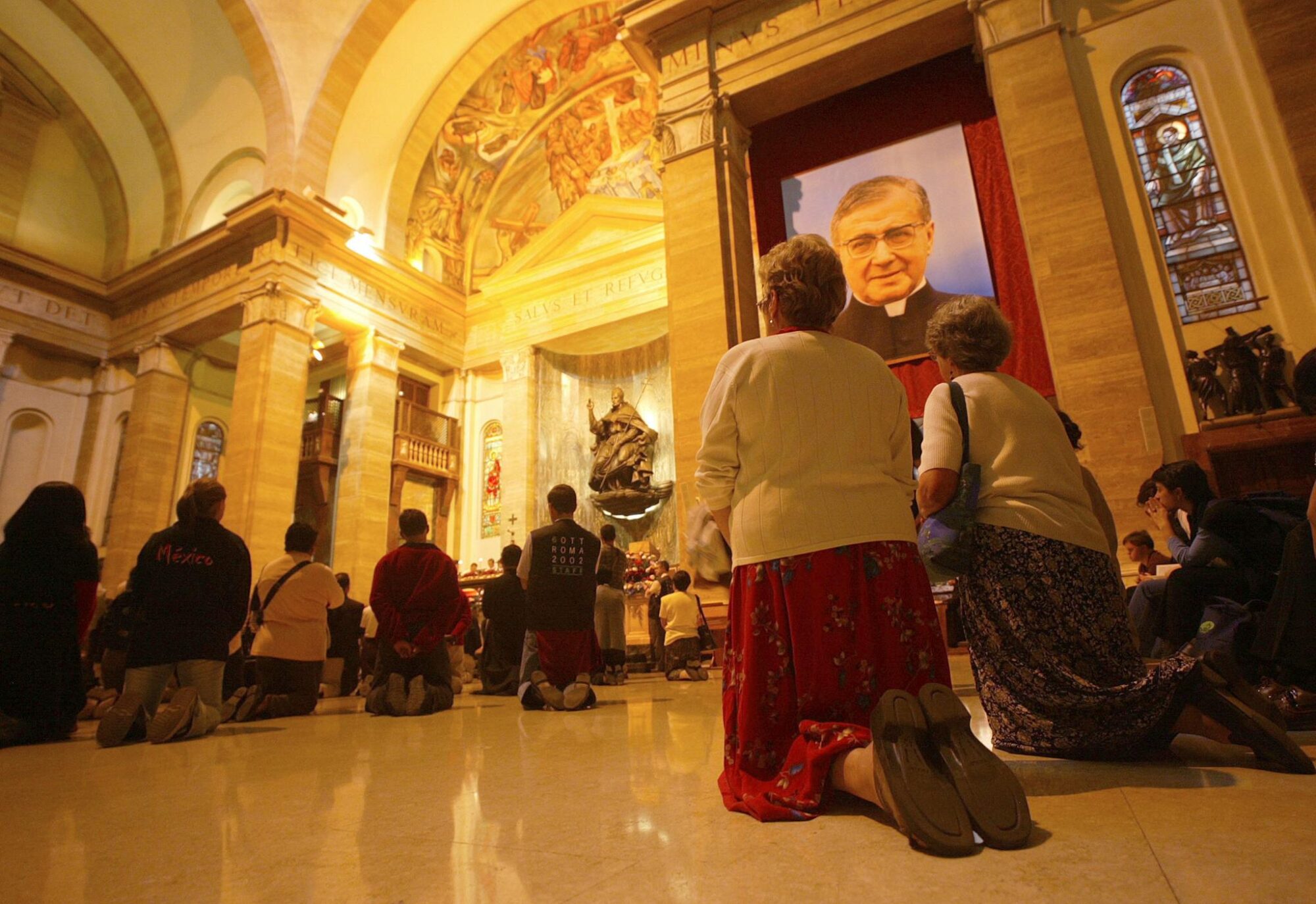
Pilgrims pray in front of the remains of Opus Dei founder, Jose Maria Escriva de Balaguer in Saint Eugenio’s Basilica in Rome, 03 October 2002.
In a new motu proprio (“of one’s own initiative”) dated Tuesday, August 8th, Pope Francis amended the canons relating to personal prelatures, a status previously enjoyed by the organisation of Opus Dei, which had already been undermined a year ago by a previous papal reform.
The principle of the personal prelature dates back to the Second Vatican Council and was instituted by the decree Presbyterorum ordinis. Opus Dei, unaffiliated with a territory and therefore a diocese, needs the personal prelature to enable the organisation to carry out special pastoral tasks by virtue of a recognised ‘charism.’ The personal prelature has been used very little, since in the Catholic Church only Opus Dei, the organisation founded by Saint José Maria Escriva de Balaguer, has enjoyed this status since 1982.
At the end of July 2022, Opus Dei had already come under attack from Pope Francis. The motu proprio Ad charisma tuendum—conceived as a continuation of Praedicate Evangelium (“Preach the Gospel”), the apostolic constitution from 19 March 2022—intended to reform the structure of the Roman curia “in order to better promote its service in favour of evangelization.” It moved the supervision of personal prelatures, and therefore of Opus Dei, from the Conference of Bishops to the Conference of Clergy, which had the effect of weakening the authority of the Work and strengthening Vatican control over it. Ad charisma tuendum had also changed the status of the leader of the Work, who no longer had the rank of bishop: he could no longer bear the attributes of a bishop and or exercise the authority of a bishop.
Following from these earlier provisions, the “Apostolic Letter in the form of a Motu Proprio amending canons 295-296 on personal prelatures,” published on August 8th, now assimilates personal prelatures into “public clerical associations of pontifical right.” The edict, in simple terms, will further strengthen the Holy See’s control over the operation and development of universal or international associations, as is the case with Opus Dei, by virtue of canon 312 §1.
The pontiff “emphasises the associative character of the personal prelature,” according to the French canonist Msgr. Patrick Valdrini. The prelate of a personal prelature is now considered to be a “moderator”—a title reserved for leaders of associations of the faithful, like other existing communities, such as the Emmanuel Community—who retains the authority of an ordinary. In other words, prelates will remain leaders with executive power, which allows them in particular to open seminaries and incardinate deacons and priests.
The text also recalls that the faithful belonging to a personal prelature remain under the jurisdiction of their local diocese, which remains the region’s natural authority.
Finally, the new motu proprio insists that the statutes of a personal prelature must henceforth be “approved or issued by the Apostolic See.” Last April, Opus Dei voted on new statutes to incorporate the recent changes. These statutes must now be reconfirmed by Pope Francis, who may want to change them once more.
The reform is consistent with other measures already taken by Pope Francis, aimed at accelerating the centralisation of power despite the stated intentions of ‘synodality’ and the fight against ‘clericalism.’
Opus Dei has issued a deliberately cautious statement on this major change to canon law:
We will study the consequences of these changes on the juridical configuration of Opus Dei, also in the context of the work being done with the Dicastery for the Clergy on the adaptation of the statutes requested by the Motu Proprio Ad charisma tuendum, in a climate of communion with the Holy Father.
The i.media agency explains these changes as the possible creation of new personal prelatures that are currently being studied in Rome.
